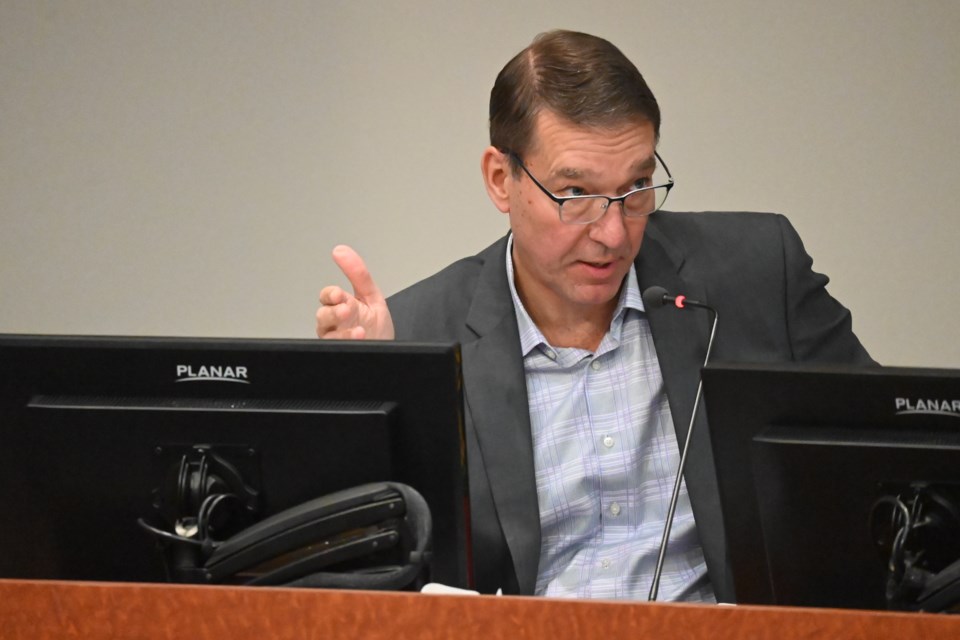Newmarket Mayor John Taylor is speaking out against what he sees as an unfair deal between the province and City of Toronto that would support a continued “tax holiday.”
Taylor sent a letter to the editor to The Globe and Mail after the province and Toronto announced a working group for a “new deal” Sept. 18. The group will seek to address Toronto’s long-term financial challenges, which the province said cannot be solved through “new fees or taxes.”
But Taylor’s outlook is different. He said the consideration of a new deal backed by Ontarian taxpayers concerns him.
“Toronto’s property taxes are significantly lower than the rest of the towns and cities in the GTA and Ontario,” Taylor said in the letter, also posted on social media. “Many of the wealthiest people in the province live in Toronto and pay the lowest property taxes because Toronto ouncils for decades have kept the tax rate artificially low creating a systemic financial sustainability problem. If the province bails Toronto out, the residents in the rest of the GTA will keep paying for their tax holiday.”
Toronto is projecting a $46.5-billion shortfall over the next 10 years in what it called an “unprecedented financial crisis” in a news release. It said it has taken steps to find $2.5 billion in savings. It also passed a 5.5 per cent tax increase in 2023, the largest since amalgamation, and introduced new means like a municipal accommodation tax. But the city said it still requires help from upper levels of government.
“To resolve Toronto’s deep financial challenges, we’ll need partnership with all orders of government,” Mayor Olivia Chow said in a news release.
Toronto was far from alone in passing larger-than-usual tax increases this year. Newmarket also passed a 5.5 per cent tax increase, its biggest in a decade, citing significant inflationary pressures. Other area municipalities also had larger tax increases, including Whitchurch-Stouffville (9.04 per cent), Georgina (6.89 per cent) and East Gwillimbury (5.55 per cent).
A May report from Zoocasa found Toronto, along with Markham, Vaughan and Richmond Hill, had the lowest property tax rates in the GTA, all below 0.7 per cent. In contrast, Newmarket is in the middle of the pack at 0.81 per cent.
The province is expressing willingness to step in for Toronto.
“Toronto has for decades serviced and facilitated domestic and international trade and driven a significant portion of the country’s gross domestic product (GDP) growth,” the province said in a news release. “Given the city’s national importance, solving these challenges is necessary for the long-term economic success of Canada.”
In response to Taylor’s letter, manager of Toronto media relations and issues management Russell Baker said the city is in a unique position and re-iterated its importance to Canada’s trade.
“These challenges cannot be solved through program cuts, new fees and taxes – the plan must include a view to a sustainable future,” Baker said. “The city will work collaboratively with the province to invest in and support smart and effective growth for Toronto.”
But other municipalities are also facing financial challenges. Newmarket and many others have protested the province’s moves to reduce development charges and said the province’s latest efforts to make up for it fall well short.
“If Toronto gets a financial subsidy from the province, so should all the towns and cities in Ontario,” Taylor said in his letter. “I support new funding tools for towns and cities, including Toronto, but not an extra provincial subsidy for Toronto at the expense of the rest of us.”
In response to the letter, Ministry of Municipal Affairs and Housing spokesperson Alexandru Cioban cited the province's announced funding of $1.2 billion over three years to address shortfalls experienced by other municipalities. The Association of Municipalities of Ontario has estimated municipalities will need at least $1 billion annually collectively to make up for the loss of development charges from Bill 23.
The provincial funding will also be contingent on working to meet housing targets. Cioban referenced Newmarket not yet committing to a housing pledge, with the town refusing the province's target of 12,000 homes by 2031 over concerns about sewage capacity limiting them.
"We have been clear that we are ready to support our municipal partners, provided they show a willingness and commitment to supporting growth, getting shovels in the ground and joining us in our shared goal of building at least 1.5 million new homes by 2031," Cioban said. "We continue to encourage Newmarket to commit to their housing target and develop a housing pledge. Should they do so, our government will give them the support they need to deliver on our shared goals of building homes."
With a new minister of Municipal Affairs and Housing coming into place this month, Newmarket is now planning to develop its own housing target instead of using the provincial one, with Newmarket staff due to report on that within the next 45 days.




